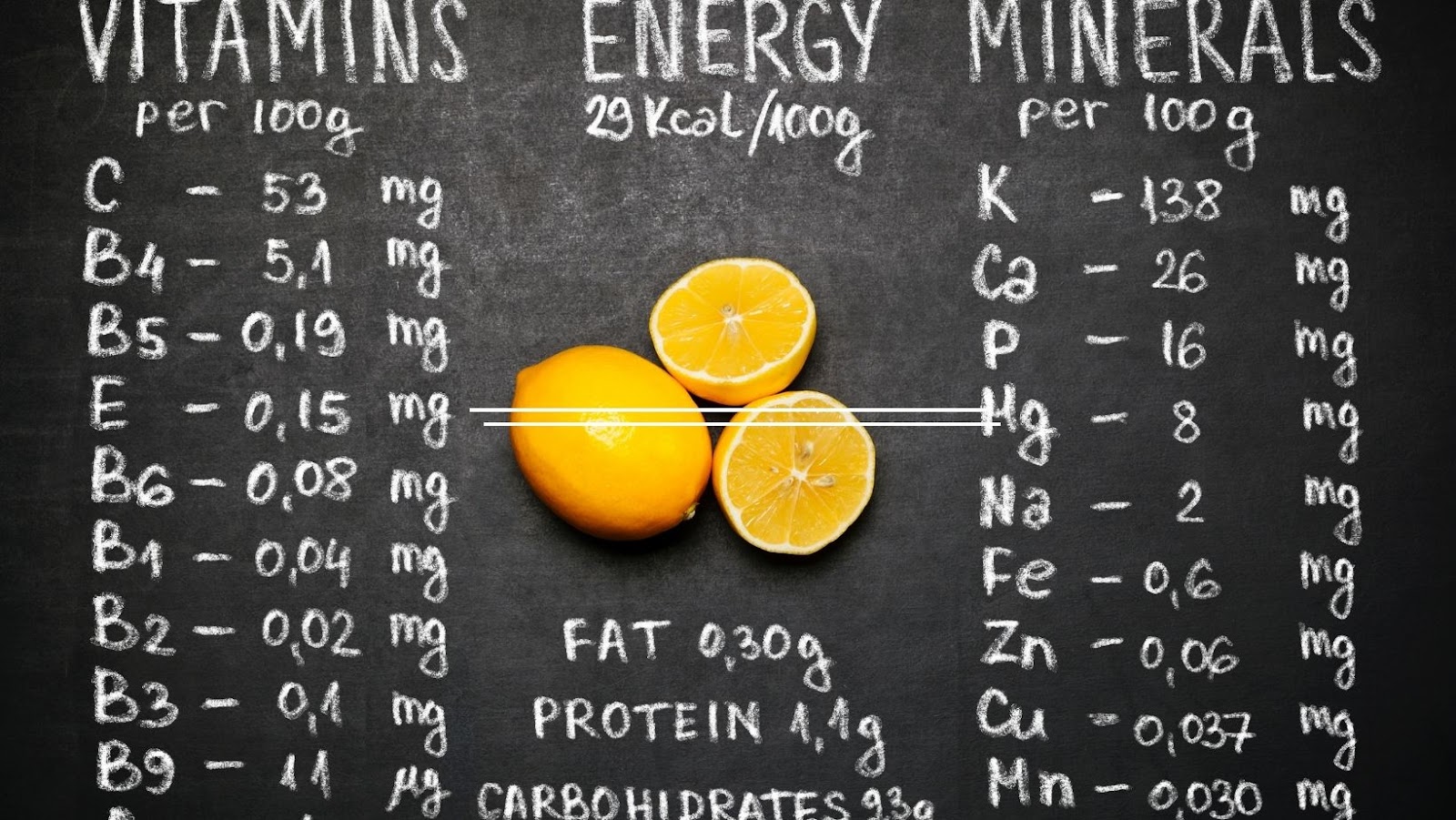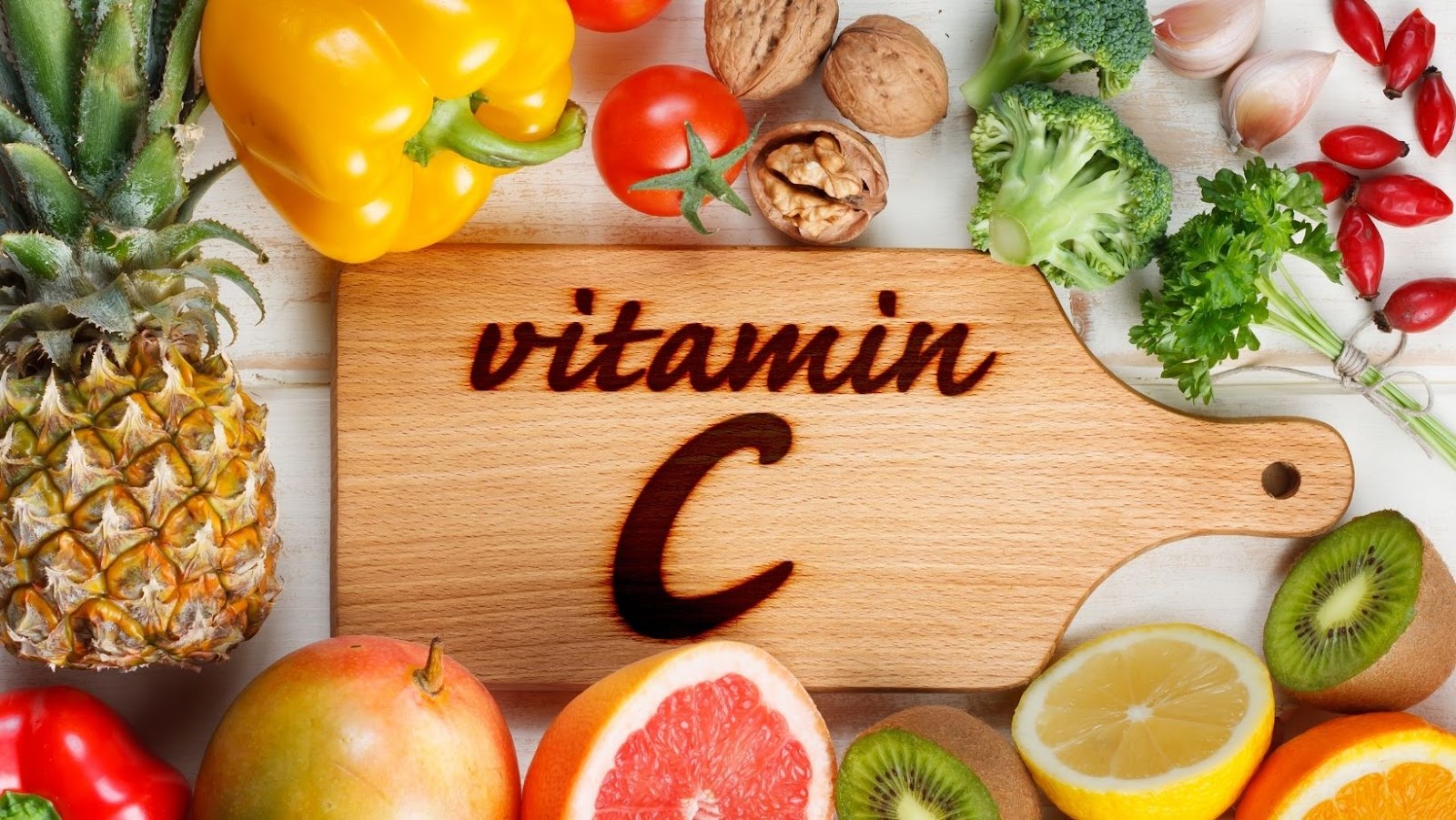
Vitamin C is a vital micronutrient that is required for several metabolic processes in the body. It is particularly important for mineral absorption, with research showing that vitamin C helps to increase the absorption of certain minerals into the body. This article will discuss the role of vitamin C in mineral absorption, as well as the minerals enhanced greatly by vitamin C.
Which mineral’s absorption into the body is enhanced greatly by vitamin c?
Vitamin C is an essential vitamin for human health, and it is critical for the absorption of certain minerals such as iron, zinc and copper. Vitamin C helps to improve absorption by aiding in the breakdown of non-heme iron, which is difficult for the body to absorb. It also improves the bioavailability of zinc and copper by binding with them to form free radical scavenging complexes that can be absorbed in the gastrointestinal tract. The availability of these minerals can be increased significantly with a sufficient intake of Vitamin C.
Vitamin C is found naturally in many foods including citrus fruits, such as oranges and lemons; red peppers; kale; broccoli; spinach; papaya; strawberries; tomatoes; Brussels sprouts and cantaloupe. Vitamin C can also be taken as a supplement or added to foods like fortified juices and breakfast cereals. A deficiency in this vitamin can lead to scurvy, a condition marked by fatigue, bruising, bleeding gums and weakened bones. It is recommended that adults get at least 75 mg-90 mg/day through their diet or through supplements.
Benefits of Vitamin C
Vitamin C has been shown to have numerous health benefits. In addition to boosting the immune system, vitamin C plays an important role in the absorption of minerals. By promoting a healthy digestive system, Vitamin C helps calcium, iron, zinc and magnesium make their way into your cells and organs.
Studies have found that taking vitamin C supplements along with dietary minerals can improve their absorption significantly. It does this by increasing gastric acid levels, which helps break down food for easier digestion. Vitamin C also protects cells from free radicals which can reduce the amount of nutrients absorbed from food.
Vitamin C is found naturally in foods like citrus fruits and green vegetables such as kale and broccoli. Eating a balanced diet that includes these foods will help ensure you get the most nutritional benefit from your meals. Food sources are always better than taking a supplement because they contain other beneficial vitamins and minerals too. However, if you are looking for an extra boost of vitamin C for increased mineral absorption into the body, supplements are your best option.
Vitamin C and Mineral Absorption
Vitamin C is an essential nutrient that plays a key role in numerous biochemical processes in the body. It has been shown to enhance the absorption of certain minerals, including iron, into the body. In this article, we will discuss the role of vitamin C in mineral absorption, with a focus on iron.
Iron
One of the most important minerals enhanced by Vitamin C is iron. Iron plays a critical role in the formation of proteins, enzymes and other essential molecules in the body. Vitamin C helps enhance the absorption of iron from foods, allowing it to be more readily available for use by the body. Iron can be found naturally in many foods such as oysters, organ meats, fortified cereals and leafy greens. Eating these foods with a source high in vitamin C (such as citrus fruits) can improve absorption significantly compared to eating these items alone. As such, it is important to pair dietary intake of both vitamins and minerals together for optimal absorption into the body.
Calcium
It is well known that Vitamin C is essential for overall health and wellbeing. Not only does it aid the immune system, but it also helps to absorb minerals, particularly calcium. Calcium is important to the body as it helps to form bones and improve the strength of teeth.
Vitamin C plays a major role in calcium absorption, as well as in its transportation throughout the body’s vascular system. Studies have shown that Vitamin C significantly increases intestinal absorption of calcium and this improved absorption can help maintain bone density and improve overall bone health. Intake of both Vitamin C and calcium is especially important for elderly patients who are at risk of developing osteoporosis.
Vitamin C is found naturally in many fruits and vegetables including oranges, strawberries, broccoli, kale, cauliflower, grapefruit, Brussels sprouts and cantaloupe. Additionally, Vitamin C can be taken as a supplement in tablet form or mixed into other drinks such as juices or smoothies. Increasing your intake of Vitamin C along with your daily calcium requirements through diet or supplementation is an effective way to ensure optimal bone health for a wide range of individuals – from children to seniors – now and into the future.
Magnesium
One of the minerals which is greatly enhanced in its absorption into the body by vitamin C is magnesium. Our bodies need magnesium for a wide variety of processes – including energy production and maintaining strong bones, muscles, and blood vessels. Magnesium aids in the maintenance of muscle contractions and healthy nerve impulses, and helps regulate calcium levels. It also contributes to improved metabolism, cardiovascular health, efficient utilisation of other minerals like iron or zinc, and reduces stress levels.
The body absorbs easily absorbed forms of magnesium better than it does other forms. However, it’s not always easy to find reliable sources of highly absorbable magnesium. Vitamin C can help increase absorption by improving solubility and helping transport the mineral across cellular membranes for better utilisation within the body. It can also facilitate more effective use of minerals like calcium and iron which require a more complex digestion process for absorption into our bodies. Without adequate intake of vitamin C in our diets our bodies are not able to absorb many essential minerals efficiently; this deficiency can leave us feeling tired, depleted and have long-term effects on overall health.
Other Benefits of Vitamin C
While most people are aware of the importance of Vitamin C for maintaining a healthy immune system, there are many other benefits of this important nutrient. In addition to aiding in general bodily health, Vitamin C is essential for proper mineral absorption into the body. Let’s look into some of the other benefits of Vitamin C.
Immune System Support
Vitamin C is an essential nutrient needed by the human body to perform many different functions in the body. Apart from improving mineral absorption, it can also help support immune system health. Vitamin C is a powerful antioxidant, which helps protect cells and their components from damage caused by oxidation, such as pollution and other environmental agents.
Additionally, it plays an important role in activating certain immune responses within our bodies, including increasing production of thymic hormones and interferon to help fight off infection or illness. Vitamin C also promotes healthy collagen production which helps skin cells heal quickly and reduces inflammation associated with skin injuries.
Antioxidant Properties
In addition to improved mineral absorption, vitamin C has antioxidant properties that can protect your body from the damaging effects of free radicals. Free radicals are molecules with an unbalanced electric charge that react with other molecules and can cause damage to cell membranes and DNA. By neutralising free radicals, vitamin C can slow down the aging process and help protect you from certain disease risks.
Vitamin C is an important component of a healthy diet. It increases iron absorption, helps to form collagen, and acts as an antioxidant in the body. Vitamin C also helps to regulate blood pressure, reduce inflammation, prevent heart disease and improve cognitive health. The antioxidant properties of vitamin C can reduce the risk for certain types of cancer as well as protecting your skin from sun damage. When taken in appropriate amounts, vitamin C has many benefits on overall health and is key for the absorption of minerals into your body.
Summary of Vitamin C Benefits for Mineral Absorption
Vitamin C plays an important role in the absorption of minerals by the body. Specifically, minerals like iron, zinc, and calcium have all been observed to be enhanced in their absorption capacity when vitamin C is reported. This is because vitamin C acts as a sort of transporter that facilitates the movement of these essential minerals into cells. Vitamin C also helps to prevent oxidation in the body, allowing iron and other minerals to better survive metabolism and enter cells intact.
Vitamin C also lowers an individual’s risk for mineral deficiencies. Iron deficiencies can cause anaemia, and calcium deficiencies can result in weak bones and a weakened immune system. Vitamin C helps absorb these vital minerals directly into cells without any interference from other compounds or stimuli.
Vitamin C also aids in collagen production, which is necessary for healthy skin and nails as well as muscular repair and weakness prevention. Furthermore, adequate doses of vitamin C may even reduce a person’s risk for chronic diseases like heart disease and stroke due to its powerful antioxidant properties which help lower overall levels of inflammation within the body.
In conclusion, it’s clear that vitamin C has extensive benefits when it comes to allowing mineral absorption into our bodies; not only do essential minerals have higher chances of reaching our cells unharmed but we become less prone to mineral deficiencies that can result in myriad health issues if left untreated or unnoticed for too long.
Additionally, regular consumption of vitamin c can even reduce your risks for more serious illnesses such as stroke or heart disease by lowering inflammation levels all throughout the body consistently!
Recommendations for Vitamin C Intake
In order for the body to maximise the absorption of trace minerals such as iron, zinc and copper, experts recommend getting at least 500 mg of vitamin C on a daily basis. This can be easily achieved through dietary patterns. Vitamin C is commonly found in fruits and vegetables, such as oranges, lemons, limes, strawberries, papaya and peppers. Additionally certain types of fish are relatively high in vitamin C such as salmon and mackerel.
If it is difficult to maintain a dietary pattern that provides adequate amounts of vitamin C on a daily basis, there are also supplemental forms available online or in various health food stores. It is important not to exceed 1000 mg per day as this can lead to gastrointestinal issues such as nausea and diarrhoea. Additionally supplements should avoid synthetic forms of vitamin C that contain ingredients such as magnesium stearate or dicalcium phosphate. It is best to find natural supplements that contain organic ingredients that provide more effective nutrient absorption into the body.
Finally it is important to note that while vitamin C enhances mineral absorption into the body, its effectiveness can vary by individual depending on various factors including lifestyle habits (including smoking), overall diet, exercise routines and age/sex related differences among others. To optimise mineral absorption into the body it is recommended following a healthy lifestyle in addition to maintaining an adequate intake of vitamin C everyday for maximum benefits for trace mineral production levels in the body.













